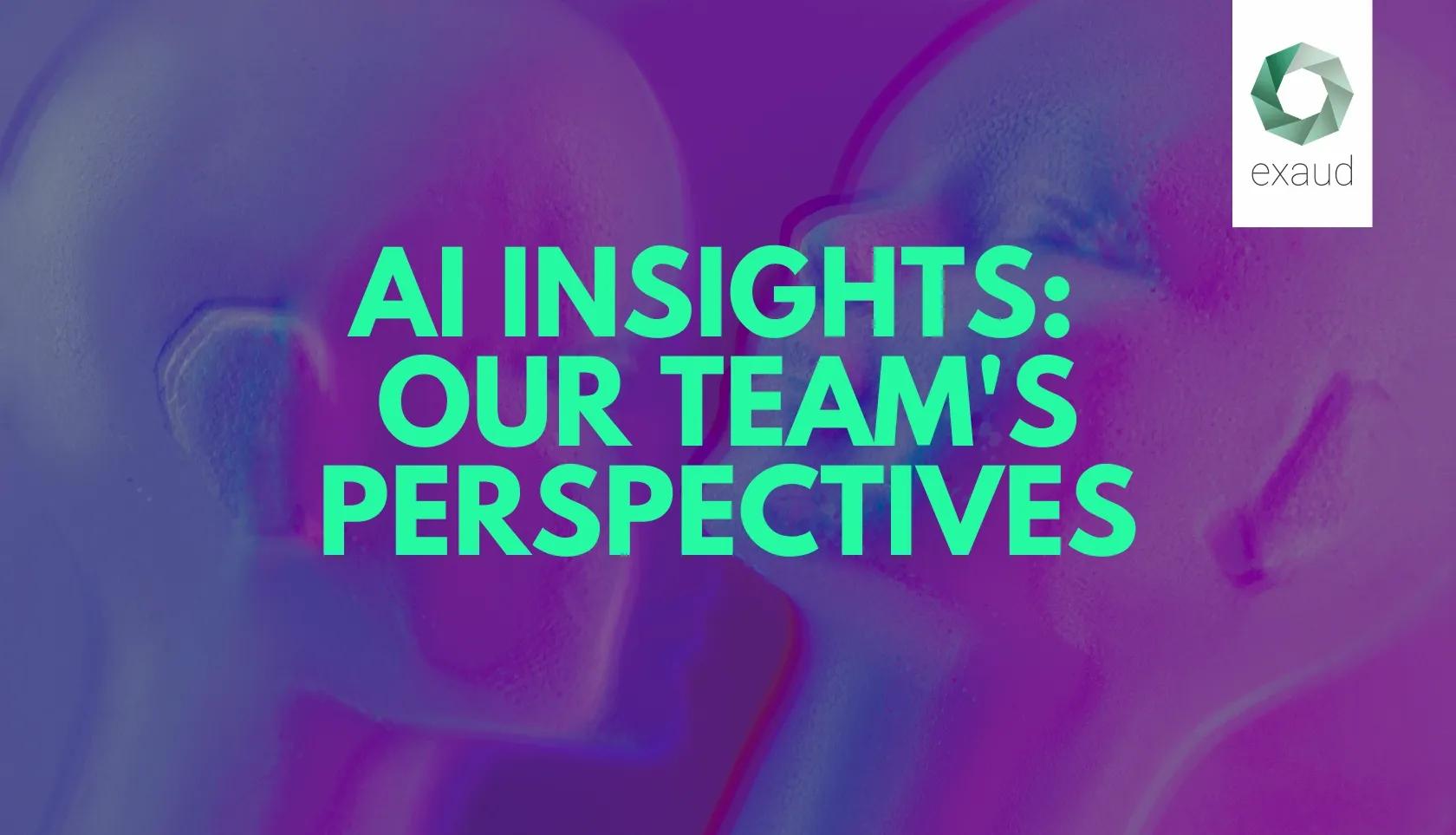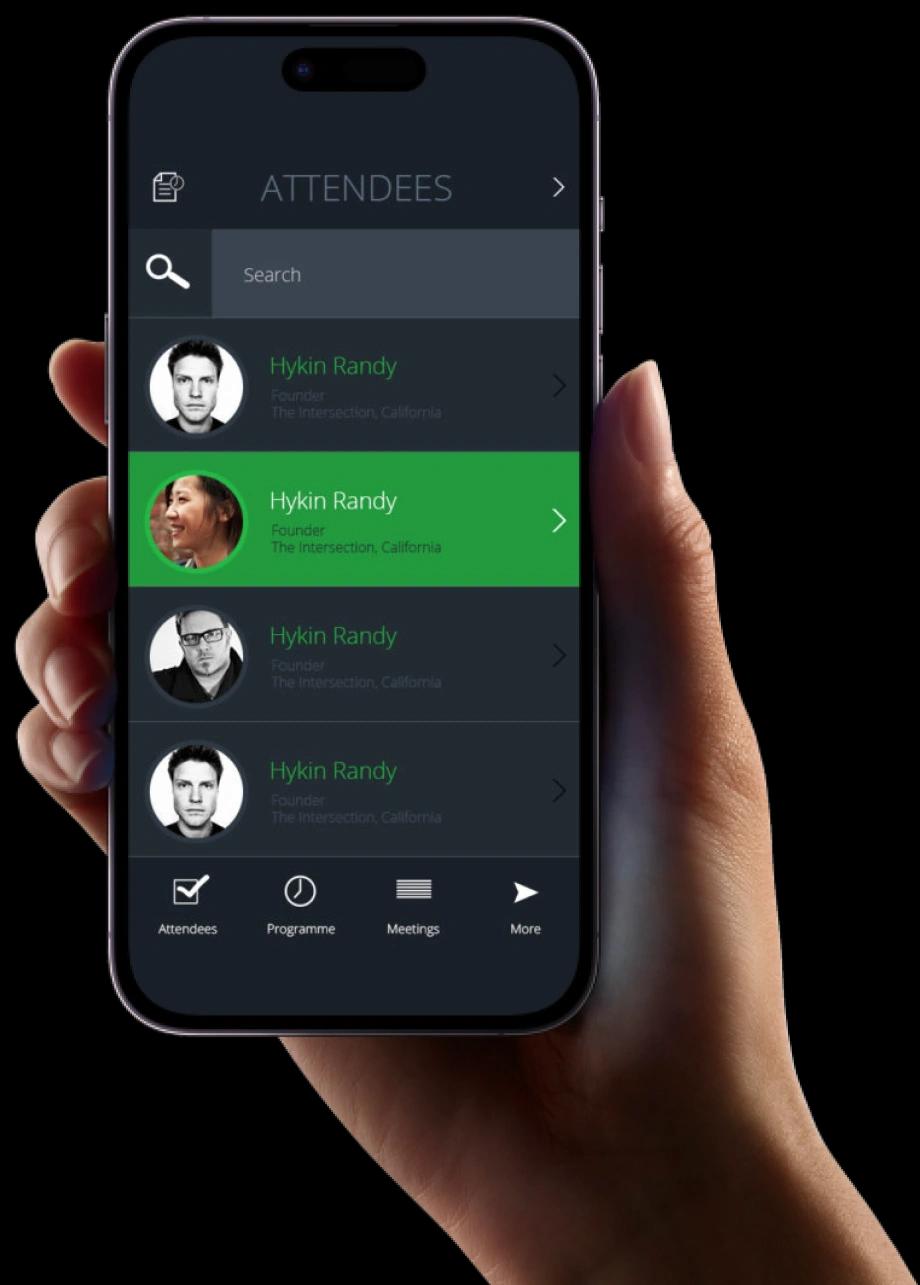Exaud Blog
Blog

AI Insights: Our Team’s Perspectives
We’ve had a chat with some of our team members to understand what they think about AI. They’ve shared their thoughts on what they’re curious about, what problems they’d like to solve, and how they feel about the future of AI. Posted onby Exaud
Welcome to our AI exploration 🚀 We’ve had a chat with some of our
team members to understand what they think about AI. They’ve shared their
thoughts on what they’re curious about, what problems they’d like to
solve, and how they feel about AI’s future. Join us as we explore their
perspectives on AI.
What aspect of ai’s future in software development are you most curious
about?
Carlos F.: The evolution of AI in software development is certainly a hot
topic. I am curious about how it will integrate into the entire software
development lifecycle. To what extent will AI be able to automate project
management, testing, and debugging? At this point, it seems to already be
able to handle junior-level tasks to some extent. I’m not sure if it will
ever be able to create a good system architecture to solve a specific
problem and code up to the best standards in the industry.
Nuno A.: What I’m most curious about is how AI can help determine the errors
that occur when you don’t really understand what they mean or how they
happen. As a developer, you lose a lot of time searching the internet trying
to figure out what a particular error means since its message is too vague
or it’s so specific to your code that there’s no real help online. It would
be interesting to see some AI that would “look” at what you are trying to do
and from the error message and debug tools gives you an accurate reason for
that error. “The app crashed because the variable abc is null due to the
library you are using being incompatible with the latest SDK, not because
you forgot to initialize it like the error message is pointing at,” for
example.
Tiago M.: I’m intrigued by the future of AI in software development. AI’s
capabilities have been significantly improving, and we’re already seeing AI
agents becoming increasingly capable of producing solutions autonomously.
This could effectively change the paradigm of software development, as an AI
agent can produce code infinitely faster compared to a human developer. For
now, human input is still necessary to guarantee the quality of the code
produced, but this could change in the not-too-distant future. Developers
may end up being AI operators, using these agents to reduce the time and
resources needed to develop software.
If you could solve one problem using ai, what would it be and why?
Ângelo P.: I think that AI could be very useful in the agriculture area,
especially if working together with robots. A problem that exists nowadays
in many crops is how to get rid of weeds. A solution that would tackle this
problem would be very interesting and it would have an impact
worldwide.
Nuno A.: Writing and executing tests. The developer/QA needs a long time to
write and run meaningful tests to test their products. Most of the tests
will only cover the “normal way” to use the app and small “problems” that
might happen. It’s almost impossible to take all scenarios. The AI could
look at the code and after a small input from the developer/QA, it could
write its own meaningful tests and run them with multiple personas and
devices such as a 70-year-old man with a 7” tablet, a kid with an old device
with a broken screen, a person who keeps swapping apps, etc., and see if any
errors or crashes happen.
Looking towards the future of ai in our field, do you find yourself more
excited or apprehensive?
Ângelo P.: I find myself more apprehensive; from what I’ve heard, AI could
possibly lead to job losses in software development. There are already some
examples of AI software that can program by themselves. I’m not sure if in
15 years or so most software developers won’t be replaced by AI.
Carlos F.: A bit of both. The proliferation of AI is like a new industrial
revolution that is making future jobs harder to visualize and current ones
easier. It is undeniable that it’s an extraordinary feat for humans to be
able to have a conversation with an AI bot that remembers context and can
answer almost anything. That same artificial intelligence can be a
programming peer that helps troubleshoot issues in the code and can assist
in writing an essay. Systems are becoming more automated, relying more and
more on AI, making life easier for everyone. The human factor cannot be
replaced since AI will rely on clear text/voice prompts to produce the
desired output. However, if processes are streamlined enough and
requirements are made very clear, a lot of expenses with more junior
resources can probably be reduced. We are seeing a shift in an industry that
is laying off software engineers and hiring data scientists and relocating
investments to AI projects. At this point, no one knows for sure what the
future holds and what some of the jobs for the new generation will be.
Nuno M.: I find myself between excitement and concern regarding the impact
of AI in our field. The idea of AI taking over tasks faster makes me worry
about how much less we might have to do and what it means for our workload.
Maybe soon, people in our field will only need to work two days a week, just
requesting and compiling on what AI replies to our requests. It’s
interesting, but I’m not sure if I should be happy about finishing work so
quickly or worried about what it means. Either way, we’ve got to keep an eye
on AI, especially in software development. It can help us move forward, but
we’ve also got to watch out for the risks. Hackers are getting better as AI
improves, which means we’ve got to be extra careful about cybersecurity. But
there are good things about AI too, especially in healthcare, for example.
Progress is happening, but personally, I’m more worried than excited about
where AI might lead us.
Tiago M.: Looking towards the future of AI in our field, I find myself both
excited and apprehensive. I’m excited because AI is evolving much faster
than most initially predicted, and we can already see its potential in
several fields to perform everyday tasks easily and quickly, especially in
software development. I don’t think AI will completely replace developers in
the next couple of years, but the workflow will definitely change to include
AI. As for the distant future, it’s hard to tell, but things could evolve in
a way that will require a lot of adaptation from several industries, which
will definitely have a big impact on many lives.
Thank you for joining us on this exploration of AI insights from our team.
Keep an eye out for future discussions on emerging technologies. If you have
any AI projects in mind,
we’d love to discuss them with you.
Related Posts
Subscribe for Authentic Insights & Updates
We're not here to fill your inbox with generic tech news. Our newsletter delivers genuine insights from our team, along with the latest company updates.